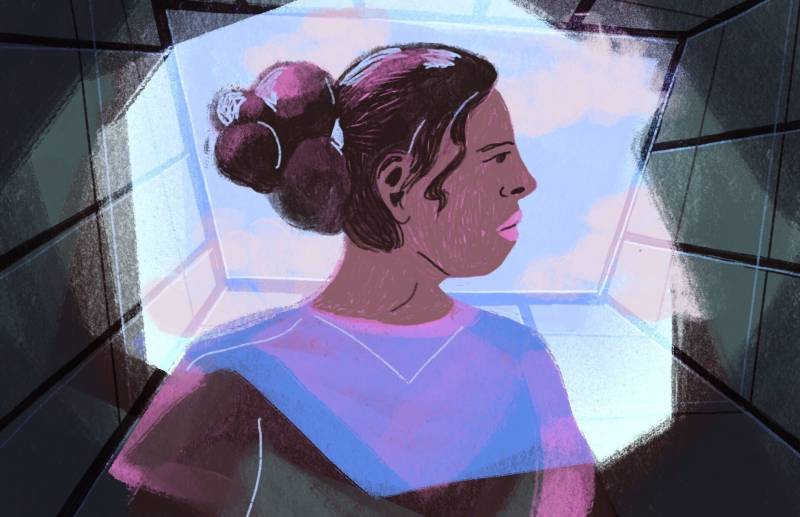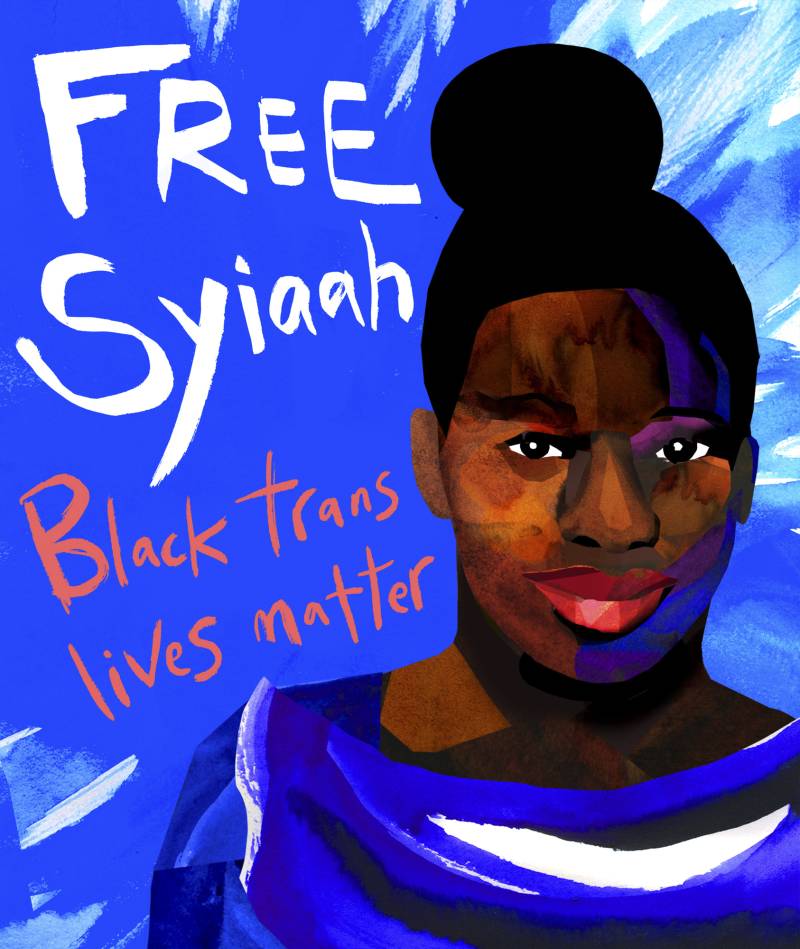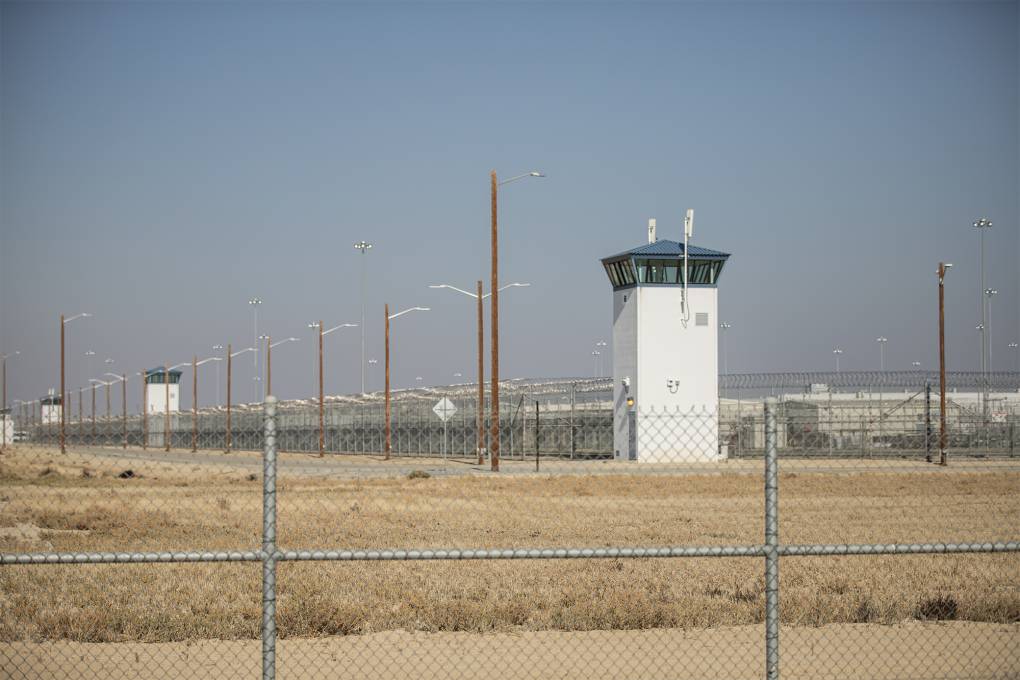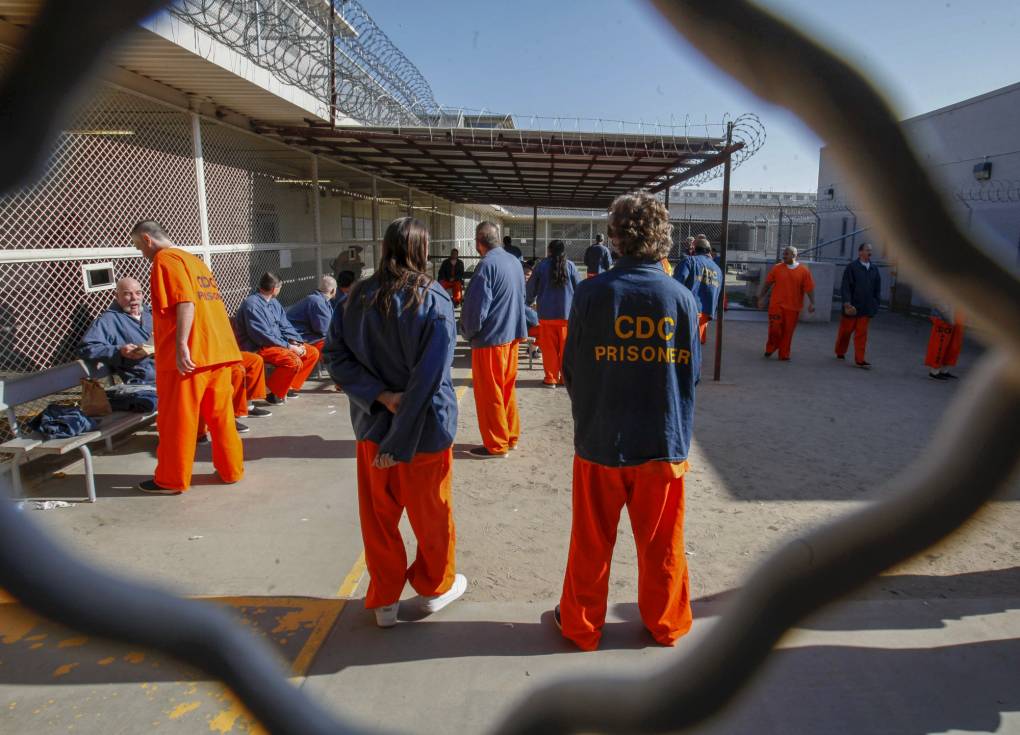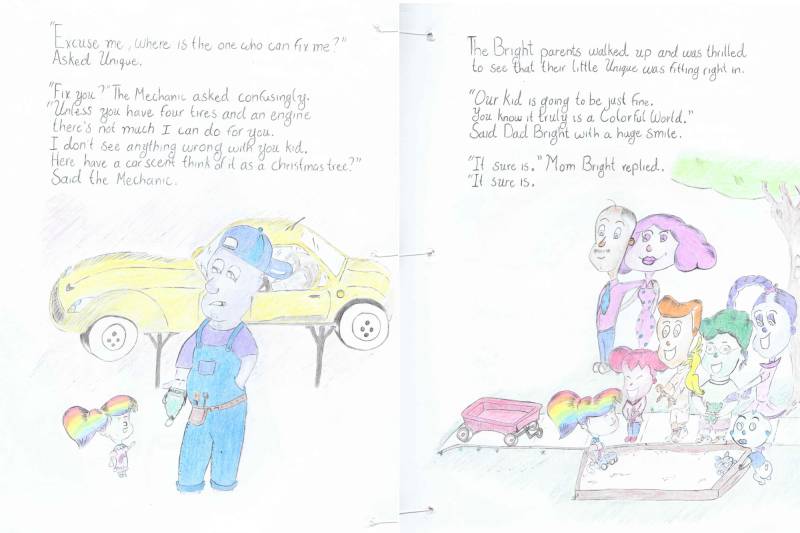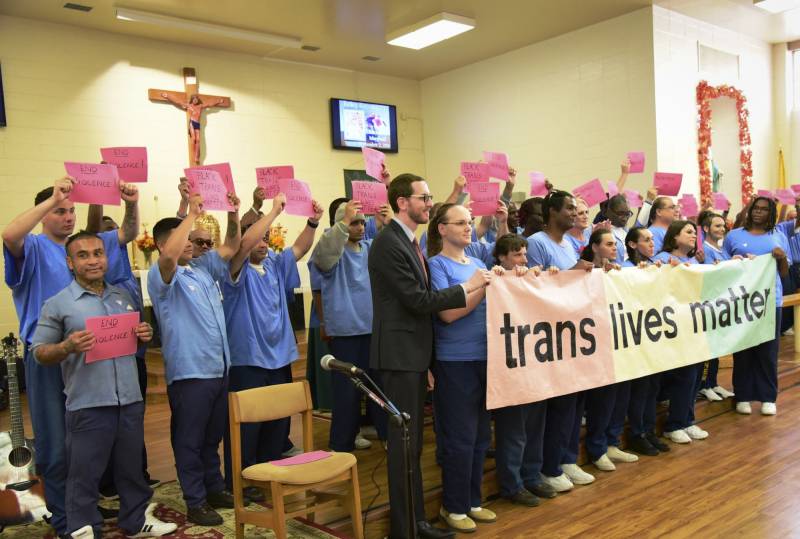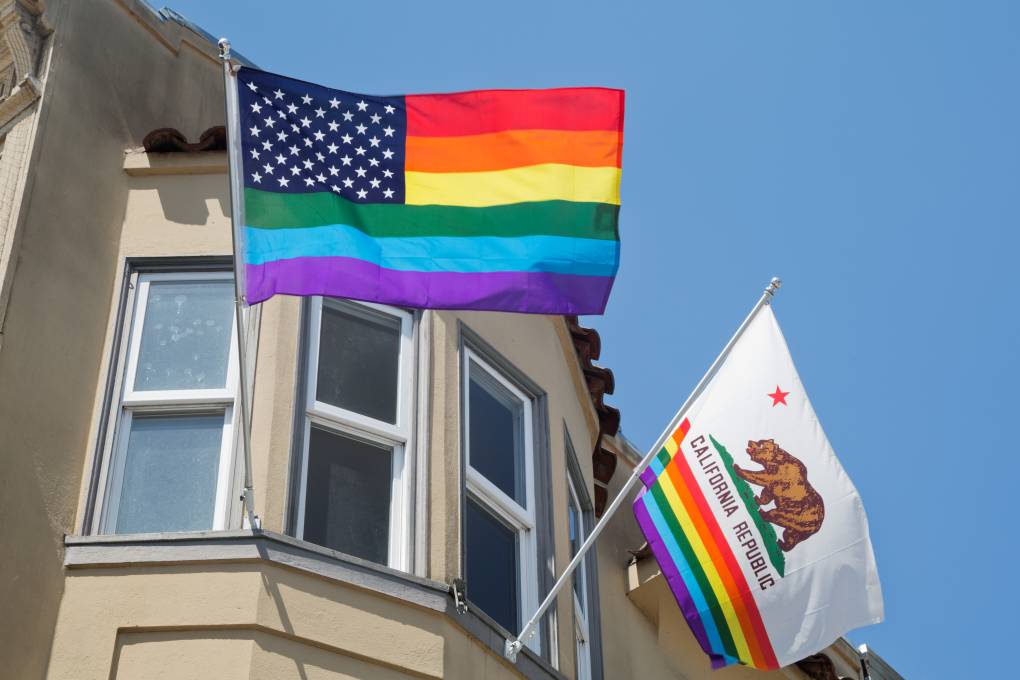“I tell people, stop calling me that,” Skylit said. “Then, I’m a problem because I say things like, ‘Well, if I’m a rapist, then you a rapist,’ and then it’s like, ‘Oh, now he’s a threat, he’s arguing, he’s aggressive.’ I’m in a cage. By myself.”
Skylit said cisgender incarcerated people have threatened to stab her, even chop off her penis. They’ve done it in front of officers without consequence. Yet just about every time she has erupted with verbal threats, she is written up. Prison officials have used the outbursts, and the enemies she’s made, as justification to keep her in solitary confinement, labeling her a “threat to the management and security of the institution.”
Some prisoners in solitary confinement — what CDCR calls restricted housing — are allowed cellmates for company. Skylit has had to cell alone. Some are allowed onto an open yard. But Skylit was designated a potential threat to others, so she has had to exercise in a cage that’s about 12-by-8 feet, often surrounded by other incarcerated people who insult her. When she attends her mental health groups, she is among those who must sit in a cage the size of a telephone booth called a “therapeutic module.”
Multiple studies confirm how damaging long-term solitary confinement is to mental health. So it’s no surprise that Skylit has struggled. Records show she has harmed herself on several occasions, once punching the wall until her hand bled. After that incident, for a few weeks in August 2022, she was medicated against her will with high doses of antipsychotic drugs. Too drugged to mount a defense, she was found guilty of multiple rule violations.
A judge determined the prison violated her civil rights by force-medicating her. For Skylit, it was an important victory. But the whole experience eroded her faith in the prison mental health system. As the months ticked by, she went off all her medications — not just the hormones, but also the ones that treat depression, anxiety and post-traumatic stress disorder.
Shattered trust
It’s important to note that many cisgender incarcerated people at CCWF with histories of sexual victimization were truly scared of the newly arriving transgender women. Some still are. The fear-mongering from staff and outside anti-trans groups has not helped. But those fears appear to be unfounded.
KQED requested discipline data from CCWF. In the two years after the new law took effect, staff did not issue a single rule violation for physical or sexual violence to the trans women who came over from men’s prisons.
Meanwhile, write-ups for violence were common in the rest of the prison population, including for fighting, assault and battery on prisoners and staff, and even inciting a riot. The data also show that the new arrivals under the law were six times more likely than other CCWF prisoners to be punished for behavior that could lead to consensual sex.
As it happens, there was a violent predator at CCWF. Allegedly, there was more than one and they weren’t transgender women. They were cisgender men, employees of the state.
In May 2023, as Skylit struggled to hold onto herself in her solitary cell, she heard the news that Gregory Rodriguez, a longtime guard at CCWF, was facing a 96-count criminal complaint for allegedly sexually assaulting more than a dozen incarcerated women over the course of years.
He’d been allowed to retire in August 2022 while under investigation. In addition to those charges, six women filed lawsuits under Jane Roe or Jane Doe pseudonyms against Rodriguez in federal court, contending he lured them to a suite of offices where there are no cameras and forcibly raped them. One of these alleged assaults took place on May 20, 2022, the same day that the crowd surrounded Skylit and called her a rapist.
CDCR settled those suits earlier this month for $3.7 million. More lawsuits have been filed alleging sexual assaults by CCWF employees. Four of the named victims are transgender women, Skylit among them. Her lawsuit (DOC) contends that Rodriguez and Pallares, the warden who called her a predator, each demanded sexual favors from her in the spring of 2022 “for the purpose of humiliating, degrading and demeaning” her.
“For him to have me come into that room, it’s just so dirty,” Skylit said. “I feel dirty.”
Pallares was demoted in January after the Rodriguez scandal broke. Currently, an associate warden at Pleasant Valley State Prison, he declined comment. Prison officials wouldn’t say whether Pallares was under investigation. But in a statement, officials said CDCR investigates all sexual assault allegations, and “resolutely condemns any staff member who violates their oath and shatters the trust of the public.”
